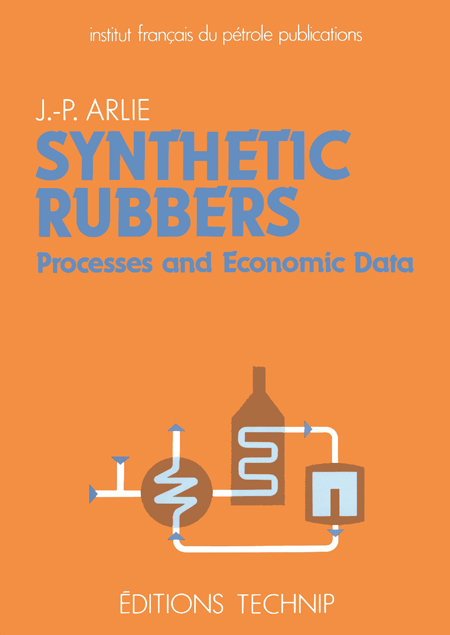Synthetic Rubbers
Processes and Economic Data
Auteurs : ARLIE Jean-Pierre
ISBN : 9782710806196
broché 170 x 240 mm 128 pages
Date de publication : 1992
 Ajouter au panier 55 €
Ajouter au panier 55 €
This book first introduces general-purpose synthetic rubbers, such as styrene butadiene rubber, polybutadiene, polyisoprene and ethylene propylene copolymers, mainly used for the manufacturing of pneumatic tires. Specialty rubbers displaying specific properties are then described. Leading examples are butyl, nitrile and neoprene rubbers as well as thermoplastic elastomers. The latter have gained ground in the last ten years, as they can be processed very rapidly. A short monograph is devoted to each polymeric product: a description is given for the polymerization processes and the major manufacturing steps, the material and energy balances, the main uses as well as the rated production capacity of the leading producing countries. This concise and clearly written text is intended for graduate students involved in chemical engineering programs, as well as young engineers and economists concerned with manufactured goods in the field of heavy chemicals.
This book is available in French under the title "Caoutchoucs synthétiques. Procédés et données économiques".
Table des matières :
1. Synthetic rubbers. 2. Styrene/butadiene rubber (SBR). 3. Polybutadiene. 4. Polyisoprene. 5. Ethylene/propylene rubbers. 6. Butyl rubber. 7. Polychloroprene rubber. 8. Nitrile rubber. 9. Thermoplastic elastomers. References. Index.

 Partager
Partager
 Tweeter
Tweeter
